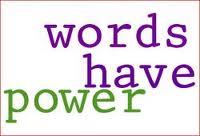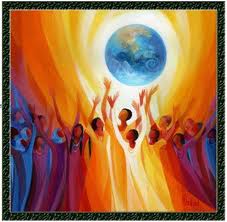by Cynthia Bischoff | Aug 11, 2012 | Heartliving
 At varying times in our lives, we encounter life passages. I’m not convinced there is a specific age associated with this time in our lives as much as a state of consciousness as related to our circumstances.
At varying times in our lives, we encounter life passages. I’m not convinced there is a specific age associated with this time in our lives as much as a state of consciousness as related to our circumstances.
When we arrive at a place in our psychological/spiritual development in which we begin to feel that our outer world may not be supporting our inner world, this causes us to pay attention and make changes.
During these passages, certain feelings may arise:
- we may feel unfulfilled or bored;
- we may find that we have unrealistic expectations;
- we may have an overly negative attitude;
- we may feel uninterested in our life situation;
- we may have work or family difficulties that were not expected.
It is at these times that we are often ready for change or what has been termed a “rebirth.” Our old compasses may no longer work and the new compass needs to be held differently. It may be a time to revisit our intentions and goals in order to course correct.
Also, throughout our lifetime, we must recognize that things cannot stay the same. Part of life involves change and growth. How else are we to learn?
So we can ask ourselves some questions:
- “How might I see or participate in my current circumstances differently?”
- “What am I avoiding feeling or doing and how might I embrace this?”
- “Am I willing to change, and if so, how?”
- “What have I not yet ‘become’ and am I willing to embrace this now?”
- What plan might I create for myself and how can I take my first step?”
As we then embrace this time, instead of resisting the feelings and circumstances, we can see it as a twist or turn on life’s path that takes us into new realms that can further our life lessons.
by Cynthia Bischoff | Jul 28, 2012 | Heartliving
 Once upon a time there was a wise man
Once upon a time there was a wise man
Who used to go to the ocean to do his writing.
He had a habit of walking on the beach before he began his work.
One day he was walking along the shore.
As he looked down the beach,
He saw a human figure moving like a dancer.
He smiled to himself to think of someone who would dance to the day.
So he began to walk faster to catch up.
As he got closer, he saw that it was a young man
And the young man wasn’t dancing,
But instead he was reaching down to the shore,
Picking up something and very gently throwing it into the ocean.
As he got closer he called out,
“Good morning! What are you doing?”
The young man paused, looked up and replied,
“Throwing starfish in the ocean.”
“I guess I should have asked,why are you throwing starfish in the ocean?”
“The sun is up and the tide is going out.And if I don’t throw them in they’ll die.”
“But, young man, don’t you realize that there are miles and miles of beach
And starfish all along it.
You can’t possibly make a difference!”
The young man listened politely.
Then bent down, picked up another starfish and threw it into the sea,
Past the breaking waves and said-
“It made a difference for that one.”
Adapted from “The Star Thrower” by Loren Eisely
by Cynthia Bischoff | Jul 21, 2012 | Heartliving
 Emotional honesty is critical in order to have healthy relationships with ourselves and others. We need to become aware of what healthy behavior and acceptable interactions look like.
Emotional honesty is critical in order to have healthy relationships with ourselves and others. We need to become aware of what healthy behavior and acceptable interactions look like.
A first step is to become emotionally honest with ourselves, to own our feelings, and to communicate in a direct and honest manner. Setting personal boundaries is a vital part of healthy relationships–which are not possible without effective communication. It is impossible to have a healthy relationship with someone who cannot communicate directly and honestly.
To get started, we must stop saying statements like: “You make me so angry.” “You hurt me.” “You make me crazy.” “How could you do that to me after all I have done for you?”
What does more effective language look like? We would state our feelings out loud and precede them with the words “I feel. . . .” “I feel concerned when our time together seems distant because. . . .” This allows us to own the feeling.
Whether the other person can hear and understand us is less important than the fact that we hear ourselves. It is so important that we own our own voice and speak up. In turn, we encourage the other person to do the same.
by Cynthia Bischoff | Jul 20, 2012 | Heartliving

I invite all women to attend a heart gathering at my office in Norfolk, VA, on August 12 at 4:00 p.m. This event, held once each year, will help you learn more about the Leading from the Heart program–how it began and testimonials from women who have participated. Over 600 women have taken the program in the past 15 years and transformed their lives!
OPEN TO ALL WOMEN
August 12, 2012
4:00 p.m. (start time) to about 5:30 p.m.
Door Prizes, Great Food!
RSVP: August 10 to maspenn@gmail.com–(Marva)
At Cynthia’s Office (see Contact link above)
Gift Certificate Give-Aways; Door Prizes; Incredible Food; Heart Fellowship–Priceless!
by Cynthia Bischoff | Jul 14, 2012 | Heartliving
 Wherever you landed on your family tree has affected you in countless ways. No greater influence exists during your growing up years than your family. Your parents as well as your siblings make such a powerful impact on you that this affects your forever.
Wherever you landed on your family tree has affected you in countless ways. No greater influence exists during your growing up years than your family. Your parents as well as your siblings make such a powerful impact on you that this affects your forever.
The relationship dynamics of a family depend in large part on order of birth. Every time a child is born the family environment changes. How parents interact with each new family member affects not only that child, but also the other siblings.
Principles of birth order are not simplistic. For example, if you have two children in a family (a girl and a boy), each is considered a First Born since each is the first of that sex; however, the boy is also a Last Born. So the two dynamics are blended. If there is a gap in a family of 6 or more years, the first child of the second set is considered a blend of a First Born as well as a Middle Born.
Here are a few very interesting ideas about birth order characteristics of children based on research:
- First Borns: Take charge (may be overbearing); command respect (may focus on goals rather than feelings); do things right (may criticize self and others); have things under control (may be less flexible); conscientious and strong-willed (sometimes stubborn).
- Middle Borns: Often are mediators (want everyone to get along); act realistic (sometimes don’t expect as much of self or others); relationships important (may be too influenced by friends); feel invisible (may stay in background or be rebellious); get along well (may want peace at any price and so let others take advantage); can be trusted (may fail to admit when they need help).
- Last Borns: Are likeable, fun, easy (may appear less disciplined); caring (can be gullible); humorous (may not be serious when need to be); relaxed (may not be focused); persistent (may see things only their way).
- Only Child: Might be self-focused (didn’t have to compete with other children); trust self (may even be too independent in relationship); also often has characteristics of First Born (above).
Did you know the birth order of the following famous people?
First Borns: Bill Cosby, Harrison Ford, Jennifer Aniston, Angelina Jolie, Oprah Winfrey
Middle Borns: JFK, Princess Diana, Jennifer Lopez, Bill Gates
Last Borns: Whoopi Goldberg, Drew Carey, Jim Carrey, Steve Martin, Chevy Chase, Ellen DeGeneres, Jon Stewart.
Every birth order has inherent strengths and challenges, and no birth order is better than another. Of course, many variables contribute to one’s overall personality and success in life. Perhaps, simply knowing these ideas might allow a person to step back and take a different perspective on family dynamics.
 At varying times in our lives, we encounter life passages. I’m not convinced there is a specific age associated with this time in our lives as much as a state of consciousness as related to our circumstances.
At varying times in our lives, we encounter life passages. I’m not convinced there is a specific age associated with this time in our lives as much as a state of consciousness as related to our circumstances.



